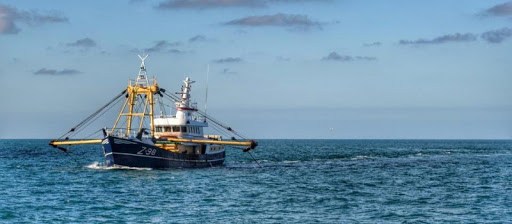A document issued by the British King Charles II in 1666 could be a lifebelt for the Flemish fishing industry if a deal is not made between the EU and the UK government over Brexit.
The United Kingdom is due to leave the EU at the end of this year, and unless a deal can be agreed before then, all of the existing rules governing trade relations between the two sides fall away.
Among the issues forming a barrier to agreement is fisheries. The UK is unwilling to give way on fisheries policy, and wants to exclude all foreign boats from British waters.
That would be the death-blow for the Belgian fishing industry, which is concentrated in Flanders. Belgian boats fish heavily in British waters, which they are allowed to do under the Common Fisheries Policy (CFP) that Britain was hitherto also a party to.
But help could be at hand, in the form of a document signed and sealed by Charles II in 1666.
Charles had been restored to the British throne six years earlier, after he had gone into exile when his father, Charles I, was deposed and executed in 1641. Charles II and his court, including his younger brother James (later James II), had spent three years taking refuge in Bruges, and now he wanted to thank the city.
That took the form of the “Privilegie der Visscherie” or Fisheries Privilege, which gave 50 fishing boats the right to fish in British waters in perpetuity.
“The English king and his younger brothers stayed here for three years at the Hof van Watervliet and Huis Casselbergh, among others,” said city archivist Jan D'hondt. "They also joined our marksmen's associations. The royal family of England was restored upon his return. The crown prince, who would remain eternally grateful to Bruges, signed this document.”
To be clear, Charles had been considered by Royalists as crown prince while in exile, despite the fact that England was effectively a republic.
Bruges mayor Dirk De fauw explained the significance of the Privilege.
“From then on, fifty Bruges ships were allowed to permanently catch herring and other fish in British waters,” he said.
“The Bruges city council at the time had handled this well. All fishermen were informed. They were even allowed to enter British rivers.”
Since the UK joined the European Union (then the European Economic Community) in 1973, the document has been of little importance. But its validity was tested a decade earlier in 1963, when Victor Depaepe, a member of the Bruges city council, sailed into British waters and allowed himself to be arrested.
The British government then examined the legality of the Privilege, and decided not to bring proceedings against Depaepe. So they gave the appearance of recognising its validity, although a court case would have set a legal precedent.
Nowadays, of course, there are no fishing boats sailing out of Bruges. But they do sail from Zeebrugge.
“Today we have a Flemish fleet of about 60 ships, of which about 25 are from Zeebrugge,” De fauw said.
“This document could become important. Brexit will take effect in January 2021 and Britain could in principle deny us access to its waters. The Fisheries Privilege is a big incentive. We hope not to use it, of course, but you can never be sure.”
In the meantime, the Flemish government has assigned a lawyer to look into the case, and has submitted an initial analysis to the EU’s chief negotiator Michel Barnier.
“We will try to bring in the Privilege if it appears that access to British waters for the Belgian fleet is seriously compromised,” Flemish fisheries minister Hilde Crevits said.
Alan Hope
The Brussels Times

